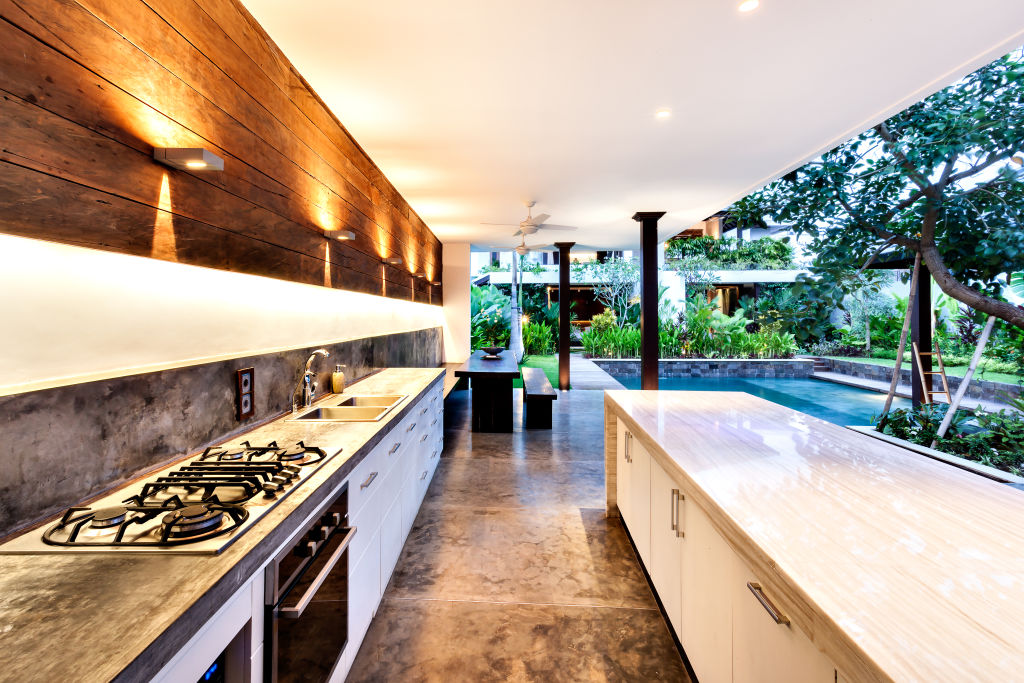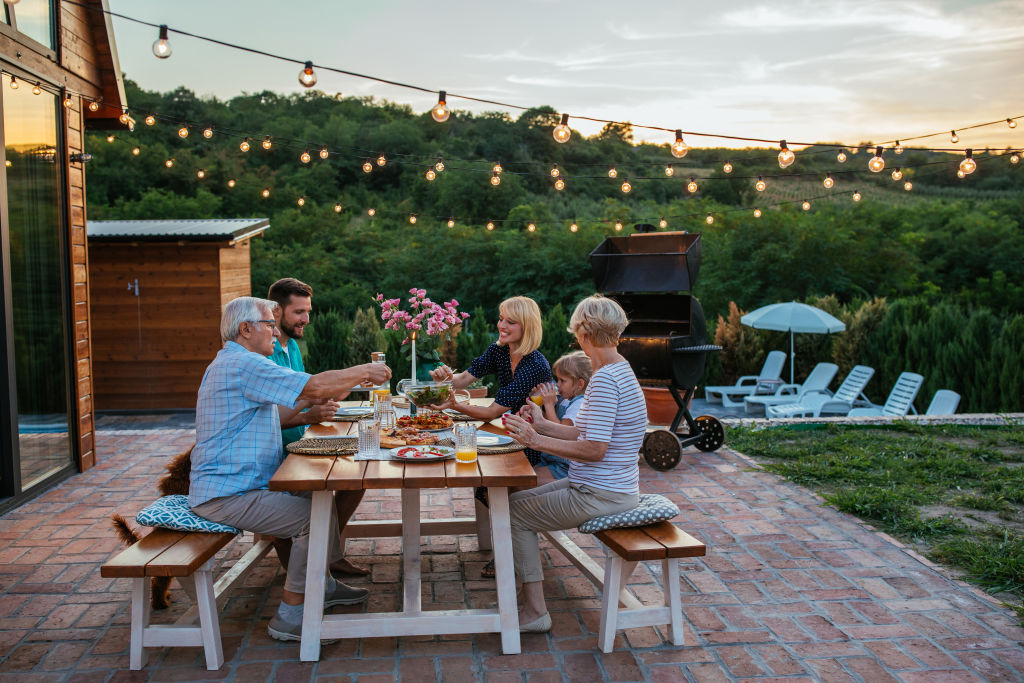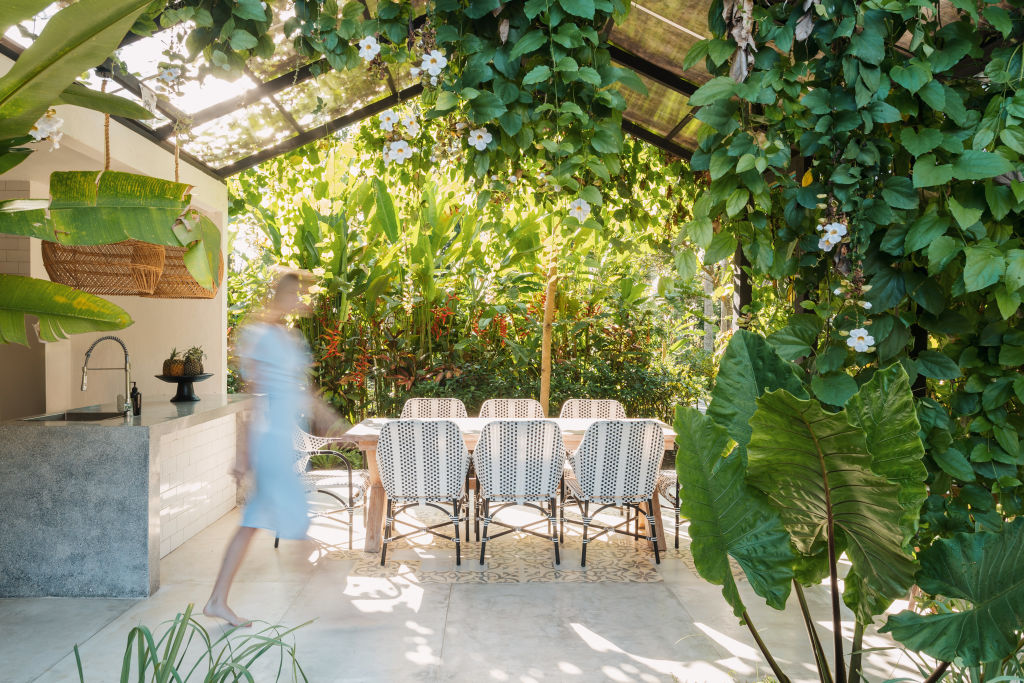The latest trends in outdoor kitchens

The humble barbie is forever burnt into the Australian psyche, but the growing popularity of outdoor kitchens has flipped the way we cook al fresco.
The global outdoor-kitchen market is tipped to reach upwards of $47 billion within the next five years, and Australians have been swept up in the trend that is reshaping how we live and entertain at home.
Long COVID lockdowns forced many Aussies to reconsider the way their homes best function and whether or not they fully meet their needs, while the introduction of outdoor dining and socialising dovetailed to put outdoor kitchens on many home owners’ wish lists.
All that time at home taught people that they can enjoy themselves just as much, if not more, with the right set-up in their own backyards, according to interior decorator Lauren Egan.
“Outdoor dining became so important for our socialisation, and that really got us thinking about how to entertain outdoors,” Egan says. “Now, with a few years of reflection, we’re doing this with greater thought and savvy decisions, which sees us including more creature comforts.”
Interior designer Lauren Silvaria says outdoor kitchens feature in almost every project she works on.
“Our love for the outdoors and being able to have family and friends come together in a relaxed and private setting is the Australian way.”
Domain spoke to the experts to find out what’s trending in outdoor kitchens in 2023.

Size and layout matter
Gone are the days when entertaining meant having to nip back and forth between the outdoor table and the indoor kitchen, says Adam Douglas of LimeTree Alfresco. Outdoor kitchens have begun to mirror their indoor counterparts when it comes to size and functionality.
“We are seeing a lot more projects that have integrated casual seating – L-shape and U-shape styles that are connecting people with the person cooking,” he says.
Built-in fridges, sinks, pizzas ovens, fire pits and top-shelf appliances such as ice makers and beer taps mean outdoor chefs are self-sufficient, and Douglas notes a lot more attention is also being paid to lighting, cabinetry and decoration.
Energy efficiency
More home owners are embracing sustainable and energy-efficient features in their outdoor kitchens, including solar-powered lighting and water-saving devices, says Maria Monteverde of Kastell Kitchens.
It’s a trend that has also been recognised by The Gas Showroom’s Jodie Smith, who says most customers choose to install natural-gas heating and barbecues.
“Natural gas is far more energy efficient,” she says. “It heats quicker and is cheaper to run. Plus, you don’t have the hassle of changing the gas bottle.”
Smith says the store’s range of in-built Weber barbecues, which can be powered by natural gas, are a hit with customers.
“They are becoming very popular due to various features such as taps, fridges, rotisseries, smokers and cabinets.”

Natural materials
As an extension of growing environmental sensitivities, home owners are also wanting their al fresco spaces to feel more organic, Silvaria says.
“Earthy tones coupled with native flora are hot in the Australian landscape scene right now.”
Natural timbers and stone are becoming increasingly popular, Monteverde says. “These materials add warmth and character to the space and can blend seamlessly with the natural surroundings.”
Flexibility is key
Yimmy Kosasih, director at KOS Architecture and Interiors, says outdoor kitchens are the norm in the high-end homes he designs, but he advises clients to think beyond barbecuing and entertaining.
“Since COVID-19, I encourage home owners to build the outdoor kitchen as an outbuilding that can be used as a flexible space,” he says. “This space can then double as a workspace or gym, if required.”
Smarter kitchens
Experts are seeing touch-of-a-button conveniences making their way outdoors.
“Outdoor kitchens are becoming smarter with the integration of technology,” Monteverde says.
“For instance, home owners can now control their outdoor kitchen appliances, lighting, and sound systems remotely using their smartphones or voice-activated virtual assistants.”
We recommend
We thought you might like
States
Capital Cities
Capital Cities - Rentals
Popular Areas
Allhomes
More







